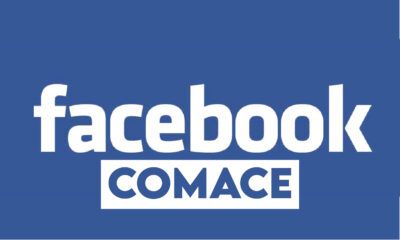Technology
Understanding thejavasea.me Leaks: How AIO-TLP Data Breaches Are Redefining Online Security

In today’s digital landscape, data security has become a top priority. However, the recent leaks from thejavasea.me have left many questioning the vulnerability of online platforms. These leaks, which expose sensitive AIO-TLP (All-In-One Traffic Light Protocol) data, have significant implications for individuals, businesses, and governments. This article delves into what thejavasea.me leaks entail, the significance of AIO-TLP, and the steps necessary to safeguard sensitive information in the future.
What is thejavasea.me?
thejavasea.me is a controversial platform operating on the dark web, known for hosting sensitive and often unauthorized data. It serves as a hub where users can access information that is not available on mainstream internet platforms. From premium personal data to confidential documents, the website offers a trove of information that raises significant ethical and security concerns.

While the platform is shrouded in anonymity, it has gained notoriety for its role in exposing private data. Critics argue that its existence jeopardizes the principles of privacy and data protection.
What Does AIO-TLP Mean?
AIO-TLP stands for All-In-One Traffic Light Protocol, a system designed to classify and manage data based on its confidentiality level. This framework uses color-coded labels to dictate how data should be shared and handled:
- Red: Highly confidential information meant only for trusted parties.
- Amber: Data that can be shared with specific individuals under certain restrictions.
- Green: Information that can be shared within a trusted community.
- White: Data that is safe for public disclosure.
This protocol ensures that data sharing is structured and secure, but its exposure through leaks like those on thejavasea.me undermines its very purpose.
Understanding thejavasea.me Leaks
The recent leaks on thejavasea.me have exposed vast amounts of sensitive information. This data includes:
- Private conversations
- Financial transactions
- Personal details like email addresses and official IDs
The breach appears to have been a calculated effort by skilled hackers exploiting vulnerabilities in digital systems. The leaked data is now circulating freely on the dark web, where it can be misused for fraudulent activities, identity theft, and more.
Why Are These Leaks Significant?
- Erosion of Trust: Individuals and organizations rely on digital platforms to protect their data. These leaks erode that trust, highlighting vulnerabilities in even the most secure systems.
- Financial Implications: Leaked financial information can lead to fraud, unauthorized transactions, and significant economic losses.
- National Security Risks: Sensitive government data exposed in the leaks could compromise national security and disrupt governmental operations.
- Ethical Concerns: The unregulated nature of the dark web means that much of the leaked data is unverified, leading to potential misuse and harm.
The Impact of thejavasea.me Leaks on the Digital Landscape
The leaks from thejavasea.me have far-reaching consequences:
1. Exposure of Corruption
Activists and whistleblowers might use leaked data to uncover corruption or unethical practices. While this could lead to greater accountability, it also raises ethical questions about the means of obtaining and sharing such information.
2. Reputational Damage
Unverified data in the leaks can tarnish the reputations of individuals and organizations, leading to character assassination and long-term consequences.
3. Legal and Financial Ramifications
The misuse of leaked data can result in legal battles, financial losses, and identity theft. Companies and individuals alike are vulnerable to exploitation.
4. Loss of Privacy
The exposure of personal data compromises individuals’ privacy, making them susceptible to phishing attacks, scams, and other forms of cybercrime.
Categories of Leaked Data
The data leaked on thejavasea.me spans multiple categories:
- Government Data: Confidential government documents that could disrupt national security.
- Personal Data: Sensitive details such as financial records, email addresses, and IDs.
- Business Documents: Proprietary contracts, financial statements, and strategic plans.
How to Respond to Data Leaks
If you suspect your data has been compromised, immediate action is crucial. Here are some steps to take:

- Enhance Encryption Protocols
- Use end-to-end encryption for sensitive communications.
- Implement multi-factor authentication (MFA) to secure accounts.
- Employee Training
- Conduct regular workshops to educate employees about cybersecurity best practices.
- Encourage vigilance in handling sensitive information.
- Robust Defense Systems
- Collaborate with cybersecurity firms to detect and mitigate breaches promptly.
- Use advanced threat detection tools to monitor for suspicious activity.
- Client Alerts
- Notify affected individuals about the breach and provide guidelines for safeguarding their data.
- Encourage users to change passwords and enable MFA immediately.
How to Protect Your Data Online
Prevention is the best defense against data breaches. Follow these tips to safeguard your online information:
- Use Strong Passwords: Create complex passwords with a mix of letters, numbers, and symbols. Consider using a password manager.
- Enable Multi-Factor Authentication: Add an extra layer of security to your accounts.
- Avoid Sharing Personal Information: Be cautious about sharing sensitive details on unfamiliar platforms.
- Beware of Phishing Scams: Avoid clicking on suspicious links or attachments in emails.
Frequently Asked Questions (FAQs)
1. What is thejavasea.me?
Thejavasea.me is a dark web platform known for hosting leaked personal and confidential data. It operates anonymously and is often criticized for its role in compromising privacy.
2. What does AIO-TLP stand for?
AIO-TLP stands for All-In-One Traffic Light Protocol, a system that classifies and manages data based on its confidentiality using color-coded labels (Red, Amber, Green, White).
3. How can I protect myself from data breaches?
Use strong passwords, enable multi-factor authentication, avoid sharing sensitive information online, and stay vigilant against phishing scams.
4. What should I do if my data is leaked?
Immediately change your passwords, enable MFA, monitor your financial accounts for suspicious activity, and alert relevant organizations about the breach.
5. Can the leaked data be removed from the dark web?
Once data is leaked on the dark web, it is challenging to remove it entirely. However, cybersecurity firms can assist in monitoring and mitigating potential risks.
Conclusion
Thejavasea.me leaks and the exposure of AIO-TLP data highlight the vulnerabilities in today’s digital systems. While such leaks may serve as tools for accountability in some cases, they pose significant risks to privacy, security, and trust in online platforms. Individuals and organizations must prioritize cybersecurity measures and remain vigilant to mitigate the impact of such breaches. By staying informed and proactive, we can navigate the digital landscape more securely.
-

 Blog3 months ago
Blog3 months agoite:mommyandlove.com/baby-names/: sugget baby name in free
-

 Crypto3 months ago
Crypto3 months agoDiscover the Power of “icryptox.com future” for Real-Time Crypto Analysis
-

 Blog3 months ago
Blog3 months agoZtoog.com: Your Ultimate Gateway to Tech Innovations and Future Trends
-

 Social Media3 months ago
Social Media3 months agoUnlock the Power of Connection with Facebook Comace: A Comprehensive Guide
-

 Life Style4 months ago
Life Style4 months agomake1m.com Millionaire Life: How to Become
-

 Blog3 months ago
Blog3 months agoWhy ветеринарная клиника VetCityPets Veterinary Clinic Is the Best Choice for Your Pet’s Health
-

 Technology4 months ago
Technology4 months agofashion 6 cell 10.8v 4001mah-5000mah replacement laptop battery for asus
-

 Crypto4 months ago
Crypto4 months agoeCryptoBit.com Tokens: Today’s Best NFT Coin




